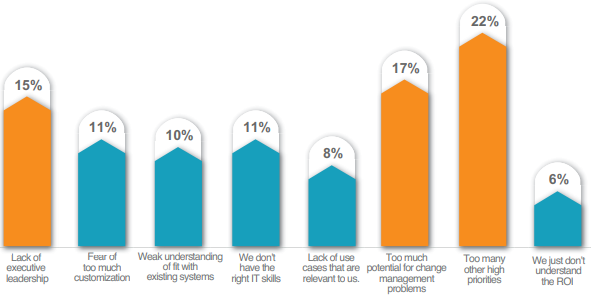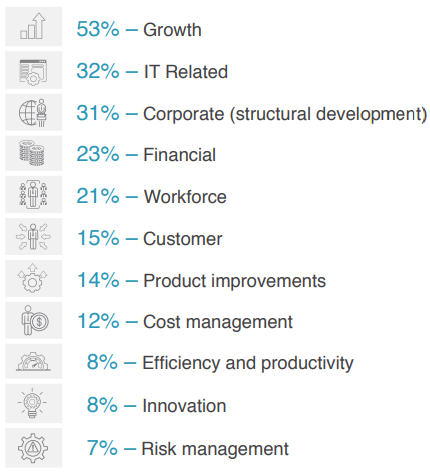Do C-Suites Really Care About Investing in Data Governance?

Note: This is an excerpt from “Automation in Records Management and Information Governance,” a collaborative report we released with AIIM. The report is available to view at no charge and is based on data from over 220 surveyees with contributions from a panel of industry experts.
Even though most organizations give lip service to statements like, “In a digital age, effectively managing your information assets is just as critical as managing your financial, physical, and human assets,” the reality for most organizations is that it is difficult to map this general sentiment to specific information governance projects.
The top obstacles to undertaking new governance projects all relate to senior executive buy-in and support: a) too many other high priorities (22%), b) too much potential for change management problems (17%), and c) lack of executive leadership (15%).

The executive “mindshare” challenge is particularly acute given that the benefits of many governance projects cut across multiple departments and functions, creating “crowding out” and “free rider” issues when it comes to funding time.
The solution to the executive mindshare problem – as reflected in the comments within the Expert Panel comments – lies in not selling “governance” per se, but rather selling the things that executives care about and that good “governance” enables. This means less of a focus on the “how” of governance when communicating with senior executives – they don’t care – and more focus on the specific benefits that a governance project will yield in terms of customer experience, timely information, and better decision-making.
Last year, Gartner surveyed 473 CEO and senior business executives about their top three business priorities. The top priorities were:

Arguments for records and governance projects have traditionally been made at the lower end of this list, particularly using cost and risk arguments. The trick for these projects moving forward is to shift to the top of the list and focus on the role that timely and trusted information that is delivered in context plays in achieving the growth objectives of the organization.
What the panel thinks:
“I don’t mean to sound cynical about this. I just don’t think anybody within big organizations actually cares about ‘governance’ per se. I don’t know that there is a level of caring in most companies that makes this that important, and I think that’s why companies struggle. Of course, we do a lot of talking about it. But as long as people have sufficient data to do their jobs, to do analyses to run the business, and to make strategic decisions, I don’t think a lot of companies really care all that much whether we call it ‘records management’ or ‘information governance.'”
“My C-suite cares a great deal about IG, but thinks of it in compartments (RM, data management), not as an all-encompassing concept. Compliance is our main goal, and we are solid there. Senior management tends to get more excited about customer-facing initiatives than organizational structure. There needs to be a balance of the two.”
To learn what our full panel of seven industry experts has to say about this topic, download the full AIIM report here.
Subscribe to our blog to keep up with all of AvePoint’s data governance resources.
As the former Content Marketing Specialist for AvePoint, Brent led the strategy and direction of all AvePoint's blog properties.



